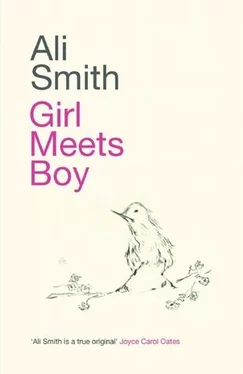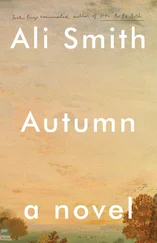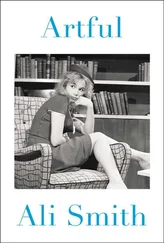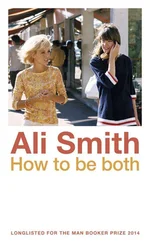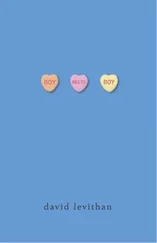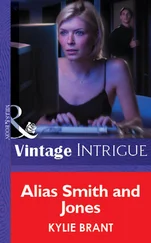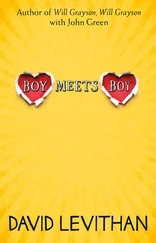(He wants me to do — what?)
Your second brief is a little tougher. But I know you’ll meet it. Small body of irate ethnics in one of our Indian sub-interests factioning against our planned filter-dam two-thirds completed and soon to power four Pure labs in the area. They say : our dam blocks their access to fresh water and ruins their crops. We say : they’re ethnic troublemakers who are trying to involve us in a despicable religious war. Use the word terrorism if necessary. Got it?
(Do what?)
(This chair feels unsafe. Its slight moving under Keith’s arm is making me feel sick.)
Fifty-five and upwards per annum, Keith says, negotiable after the handling of these first two briefs.
(But it’s — wrong.)
Our kind of person, Keith says.
(Keith’s midriff is close to my eyes. I can see that his trousers are repressing an erection. More, I can see that he wants me to see it. He is actually showing me his hidden hard-on.)
… brightest star in the UK-based Pure-concern sky, he’s saying, and I know you can do it, ah, ah, –
(I try to say my name. But I can’t speak. My mouth’s too dry.)
(It’s possible that he came all the way out here to this prefab and set the height level of this chair at the exact height for me to see his erection properly.)
… only girl this high in management, he is saying.
(I can’t say anything.)
(Then I remember the last time I needed a glass of water.)
(I think about what a glass of water means.)
I can’t do this, I say.
Yes you can, he says. You’re not a silly girl.
No, I’m not, I say. And I can’t make up rubbish and pretend it’s true. Those people in India. That water is their right.
Not so, my little Scotty dog, Keith says. According to the World Water Forum 2000, whose subject was water’s exact designation, water is not a human right. Water is a human need. And that means we can market it. We can sell a need. It’s our human right to.
Keith, that’s ridiculous, I say. Those words you just used are all in the wrong places.
Keith spins the chair round with me in it until it’s facing him. He stands with his hands on the arms and leans over me so I can’t get out of the chair. He looks at me solemnly. He gives the chair a playful little warning jolt.
I shake my head.
It’s bullshit, Keith, I say. You can’t do that.
It’s international-government-ratified, he says. It’s law. Whether you think it’s bullshit or not. And I can do what I like. And there’s nothing you or anyone else can do about it.
Then the law should be changed, I hear myself say. It’s a wrong law. And there’s a lot I can do about it. What I can do is, I can, uh, I can say as loudly as I possibly can, everywhere that I can, that it shouldn’t be happening like this, until as many people hear as it takes to make it not happen.
I hear my own voice get louder and louder. But Keith doesn’t move. He doesn’t flinch. He holds the chair square.
Your surname again? he says quietly.
I take a breath.
It’s Gunn, I say.
He shakes his head as if it was him who named me, as if he can decide what I’m called and what I’m not.
Not really Pure material, he says. Pity. You looked just right.
I can feel something rising in me as big as his hard-on. It’s anger.
It forces me up on to my feet, lurches me forward in the chair so that my head nearly hits his head and he has to step back.
I take a deep breath. I keep myself calm. I speak quietly.
Which way’s the station from here, Keith, and will I need a cab? I ask.
Locked in the ladies toilet in the main prefab while I’m waiting for the taxi, I throw up. Luckily I am adept at throwing up, so I get none of it on my clothes.
(But it is the second time for months and months, I realise as the taxi pulls away from Pure Base Camp, that I haven’t thrown up on purpose.)
I get myself back to London. I love London! I walk between Euston and King’s Cross like it’s something I do all the time, like I belong among all these other people walking along a London street.
I manage to get a seat in a sitting-up carriage on the last sleeper north.
On the journey I tell the other three people in the carriage about Pure and about the people in India.
English people are just as shy and polite as Scottish people really, under all that pretend confidence, and some of them can be very nice.
But I will also have to find a way of telling the story that doesn’t make people look away, or go and sit somewhere else.
Still, even though I’m sitting here near-shouting about the ways of the world at a few strangers in a near-empty railway carriage, I feel — what is it I feel?
I feel completely sane.
I feel all energised. I feel so energised on this slow-moving train that it’s like I’m travelling faster than the train is. I feel all loaded. A loaded Gunn!
Somewhere in Northumberland, as the train slows up again, I remember the story about the clan I get my name from, the story about the Gunn girl who was wooed by the chief of another clan and who didn’t like him. She refused to marry him.
So he came to the Gunn castle one day and he killed all the Gunns he could find, in fact he killed everybody, family or not, that he happened to meet on his way to her chamber. When he got there he broke the door down. He took her by force.
He drove her miles and miles to his own stronghold where he shut her up at the top of a tower until she’d give in.
But she didn’t give in. She never gave in. She threw herself out of the tower instead, to her death. Ha!
I used to think that story of my far-back ancestor was a morbid story. But tonight, I mean this morning, on this train about to cross the border between there and here, a story like that one becomes all about where we see it from. Where we’re lucky enough
(or unlucky enough)
to see it from.
And listen. Listen, you other two remaining people asleep right now. Listen, world out there, slow-passing beyond the train windows. I’m Imogen Gunn. I come from a family that can’t be had. I come from a country that’s the opposite of a, what was it, dominant narrative. I’m all Highland adrenalin. I’m all teuchter laughter and I’m all teuchter anger. Pure! Ha!
We roll slowly past the Lowland sea, and the sea belongs to all of us. We roll slowly past the rugged banks of lochs and rivers in a kind of clearness of fine early morning summer light, and they’re full of water that belongs to everyone.
Then I think to check my phone.
Seven missed calls — from Paul!
It’s a sign!
(And to think I used to think he wasn’t the right kind of person for me.)
Even though it’s really late, I mean really early morning, I call him straight back without listening to any of the messages.
Paul, I say. It’s me. Did I wake you?
No, it’s fine, he says. Well, I mean, you did. But Imogen –
Listen, Paul, I say. First there’s something I have to say. And it’s this. I really like you. I mean, I really, really like you. I’ve liked you since the very first moment we met. You were at the water cooler. Remember?
Imogen —, he says.
And you know I like you. You know I do. There’s that thing between us. You know the thing I mean. The thing where it doesn’t matter where you are in a room, you still know exactly where the other person is.
Imogen —, Paul says.
And I know I’m not supposed to say, but I think if you like me too, and if you’re not gay or anything, we should do something about it, I say.
Gay? he says.
You know, I say. You never know.
Imogen, have you been drinking? he says.
Just water, I say. And I mean, it’s not the same thing at all, I know, but you seem quite female to me, I don’t mean that in a bad way, I mean it in a good way, you have a lot of feminine principle, I know that, I know it instinctually, and it’s unusual in a man, and I really like it. I love it, actually.
Читать дальше
